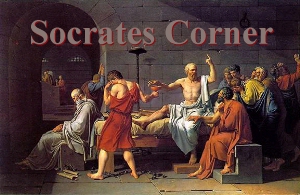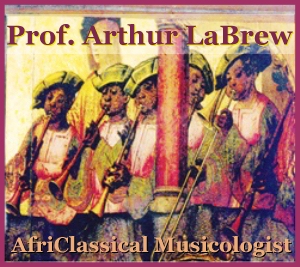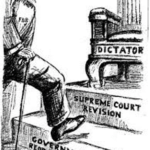Judge Richard Posner on Law and Literature, Part 2
By Ellis Washington, J.D.
*N.B.: This is the concluding section of my essay on Law and Literature based on Professor Richard A. Posner’s classic text, Law and Literature, 3rd Edition (2009). Here is Judge Posner on Law and Literature, Part 1.
| About the Author—Professor Ellis Washington, J.D.—I went to Harvard Law School with future POTUS Barack Hussein Obama for 1 year (1988-89), but I took the opposite path in Life—New World Order, Communism, Treason, Pedophilia & Satanic Ritual Abuse vs. Christianity, Conservatism, Protecting the Children & TRUMPism. I repeatedly refused to take the “Satan OATH” which is why I’ve been blacklisted for 30+ years—for my entire legal and academic career, yet I Fight on! Why?—For Harvard’s original 1692 motto—Veritas pro Christo et Ecclesia {= Truth for Christ and the Church}.
To escape the 150-Year Rothschild Chattel Slavery systems (e.g., Birth certificates, Social Security numbers bought, sold & traded on Wall Street) & Rothschild Debt Slavery systems (e.g., IRS, Income Taxes, fiat/counterfeit currency based on NOTHING, printed to fund false flag wars) of the Rothschild Khazarian Mafia Matrix (1871-2021), read and share the Truth of my Critical Thinking blog with the Youth that’s nearing 20 Million views @ EllisWashingtonReport.com & on Facebook — #JesusIsLord #DCActof1871 |
Literature and the Question of Crime and Punishment
{Paradise Lost, Oliver Twist}
Posner set the grand, metaphysical stage of Milton’s classic, Paradise Lost with these statements: “The philosophical novel, like Paradise Lost, is a theodicy—an effort to reconcile the presumed goodness of God with the prevalence of suffering in the world, and in particular the suffering of innocent children.” (Posner, 223) “In works of Christian literature, such as the Divine Comedy and Paradise Lost, great individuals often are consigned to hell, and the social virtues (what Nietzsche called the herd instinct or slave morality) are celebrated.” (Posner, 198)
Milton’s Paradise Lost along with Dante’s Inferno were perhaps my earliest exposure to the literary masterpieces that I can remember (fifth and sixth grades). I tried to recall that exposure over 40 years later in the essay, On Milton’s Paradise Lost. Here Posner strikes at what is the question of ultimate concern in Milton’s masterpiece, “But when, as in Paradise Lost, God is assumed to be omnipotent, omniscient, and absolutely good, the extent to which he permits and sometimes inflicts suffering presents a considerable puzzle. Life on earth, for people and animals…” (Posner, 253)
Lucifer rallies the fallen angels. Etching by Gustave Dore of John Milton’s Paradise Lost
This has been a universal question for humanity addressed to God throughout the ages—Why do bad things happen to good people? — and has been stated and restated in literature and history most notably in the Book of Job (perhaps the oldest book in the Bible and a perennial classic of literature), who lost all his animals and even his 10 children yet when God allowed Satan to afflict him personally, Job passed his extreme metaphysical test saying, “The Lord giveth, and the Lord taketh away; blessed be the name of the LORD.” (Job 1:21)
In Dicken’s Oliver Twist (1838), we come to the narrative of the orphan Oliver Twist, whose hardscrabble series of vocations has our protagonist moving from a workhouse to an undertaker’s apprentice. Fleeing from this sweatshop life he voyages to London and there encounters the Artful Dodger, who is the leader of a criminal gang of juvenile thieves, which is controlled by the aging Fagin, the criminal mastermind. Posner was attracted to the literary masterpiece Oliver Twist because it contained so many intersections between law and literature. For example, this famous quote: “If the law supposes that,” said Mr. Bumble, squeezing his hat emphatically in both hands, “the law is an ass — an idiot. If that’s the eye of the law, the law is a bachelor; and the worst I wish the law is, that his eye may be opened by experience — by experience.” This aphorism reminds me of a famous aphorism by a judicial hero of Posner, Justice Oliver Wendell Holmes, who in his early iconic masterpiece The Common Law (1881) wrote—The life of the law has not been logic; it has been experience. Historically speaking, this has come to mean that empiricism, pragmatism, progressivism will eventually triumph over theism, moralism and originalism in law and politic, in culture and society.
Literature and the Relation of Law to Vengeance
(Oresteia, Hamlet)
“Aeschylus’s trilogy Oresteia is based on a revenge story, the legend of the House of Atreus. Thyestes had wronged his brother Atreus in retaliation for wrongs.” (Posner, 86)
In comparing and contrasting the revenge narratives in Oresteia—Apollo vs. Clytemnestra, Posner writes “Orestes… asks the Furies why they had failed to punish Clytemnestra… They reply that they punish only people who kill a blood relative—a son who kills his mother, but not a wife who kills her husband. This reply sets the stage for Apollo, Orestes’ advocate, to deliver the crushing rebuttal that assures Orestes’ acquittal…” Posner continues that, “This limitation on the Furies’ jurisdiction is not arbitrary, because of the problem that murder within the family creates for a system in which revenge is a familial duty. A supernatural agency is needed to avenge such murders, and in the Oresteia the Furies are that agency, corresponding to the plague sent by Apollo in Oedipus Tyrannus. (Posner, 91-92)
Genealogy of Aeschylus Oresteia
Posner writes regarding Shakespeare’s Hamlet, “There is more going on in Shakespeare’s revenge plays than revenge, of course, and Hamlet criticism has tended to focus on issues that are tangential to revenge. Freudians attribute Hamlet’s delays to the Oedipus complex. By killing Hamlet’s father and marrying Hamlet’s mother, Claudius has done what Hamlet himself (a Freudian would say) unconsciously wanted to do.” (Posner, 117)
However, in the end Posner is not moved regarding the legal standing of Hamlet’s case writing that “Hamlet has failed—namely in a plot to kill—and to Hamlet’s resentment at having to play up to Claudius in order to ensure his own succession to the throne when Claudius dies. Hamlet in this analysis personifies the weak, ineffectual verbalizer confronted with the Nietzschean “master,” who we’ll see in chapter 5, is above revenge. (Posner, 116)
Literature and Specific Fields of Law—Contract Law
(Marlowe’s Doctor Faustus)
Although I had wished Posner would have chosen the much more celebrated treatment of Faust by Goethe, Part 1 (1808), Part 2 (1832), which I have written about in my 2015 essay, On Goethe’s Faust, yet since Posner chose Marlowe’s much earlier treatment of Faust (1592), then so will I.
“Another notable depiction of contract in Elizabethan drama is the pact with the devil in Marlowe’s Doctor Faustus. Faustus conjures Mephostophilis and after brief negotiations signs in blood a deed conveying his soul to Mephostophilis’s master in exchange for various undertakings The document states in fulle.” (1.5.95-114)
On these conditions following:
First, that Faustus may be a spirit in form and substances.
Secondly, that Mephostophilis shall be his servant, and he by him commanded. (Posner, 150)
Marlowe’s Faust includes many curious departures from the original legend including Mephistopheles (the Devil) appearing as a woman. “Mephostophilis had temporized, then produced ‘a DEVIL dressed like a woman, with fireworks,’ whom Faustus spurns: … Mephostophilis comments, “Tut, Faustus, marriage is but a ceremonial toy. … Marlowe’s Faustus: Contract as Metaphor? (Posner, 152)
I always found the literary irony of Faust to be this inquiry—How can one bargain away an item (an immortal soul) that one has no physical attachment to or ownership (control) of to give to another? Yet where Faust fails in contract law, or even theology to convince us, it more than makes up for it in literary and dramatic value through the Ages.
Marlowe’s Hero, Dr. Faustus
Literature and Specific Fields of Law—Inheritance Law
{Felix Holt, The Woman in White}
Posner cites inheritance law in another nineteenth century novel “… for manslaughter that ends in an unjust conviction or George Eliot’s ‘legal’ novel, Felix Holt, the Radical (1866). Today’s popular culture is permeated by law, especially if ‘literature’ is defined broadly to include movies and television dramas …” (Posner, 51)
In 2011, I was invited by the editors of the Rutgers Journal of Law and Religion in conjunction with the Cornell University Law School Nuremberg Trials Project, to submit a scholarly analysis on a declassified Nazi document dealing with of all things Nazi Family and Inheritance Law, a scholarly opus that ironically reached many similar conclusions to Eliot’s and Collins’s literary work where a perversion (or misreading) of the law inevitably leads to an unjust verdict.
Wilkie Collins’s 1859 novel, The Woman in White, has the distinction of being the first mystery or ‘sensation’ novels which details the investigative techniques of one Walter Hartright. For example, in the Preamble this narrative is put forth: “the story here presented will be told by more than one pen, as the story of an offence against the laws is told in Court by more than one witness.”
Literature and Specific Fields of Law—Intellectual Property Law
In William Gaddis’s A Frolic of His Own, Posner explains some of the legal jargon: “A ‘frolic,’ as one of the characters explains, is a concept in the law of agency: an employer is not liable for a tort committed by an employee engaged in activity unrelated to his employment.” And that protagonist “Oscar Crease” is on a frolic of his own…” (Posner, 46).
“The moral center of the novel is Oscar Crease’s stepsister, Christina, who tries to keep him and his dumb-blonde girlfriend out of trouble and whose description of the …” Despite the rather pedestrian and parochial narrative Posner gives this literary work high marks in the novel’s “Allusive, erudite and even esoteric, syntactically complex, high modernist in style,” and further declared that “William Gaddis’s novel, A Frolic of His Own (1994), is the most difficult book discussed so far in this chapter…” (Posner, 45)
Conclusion
In his last chapter, Conclusion. Law and Literature: A Manifesto, Posner restated what he had hoped he accomplished in the preceding chapters: “I end not with a summary but with a short list of theoretical, methodological, and … from fears of being sued for defamation. The law and literature canon must not be defined by Conclusion.” (Posner, 545)
He ends his comprehensive examination of the intersection between law and literature by restating his Realism view of literary interpretation; particularly as they related to explaining legal rules or guiding judicial decisionmaking:
There is need, however, for a better balance in the scholarly attention devoted to the great “legal” works of literature. Too much attention is being paid to Billy Budd, The Merchant of Venice, and To Kill a Mockingbird. The first two are great works of literature and deserve attention. But the temptation of scholars to mass around the few works that have generated a great deal of scholarly attention—so that the scholars end up writing about the scholarship rather than about the works (an obsessive academic tendency)—should be resisted. (Posner, 547)
Professor Posner is a most fascinating writer with a prodigious legal mind that in my younger years I presumed to challenge in a 130-page law review article titled, Reply to Judge Richard A. Posner on the Inseparability of Law and Morality, where I wrote specifically about a case we see time and time again placed in a literary context even if it is on TV or in the movies where EVIL triumphs over GOOD, namely—The Case of the Murdering Heir—Posner wrote:
The Case of the Murdering Heir Riggs v. Palmer, the “murdering heir” case . . . There was no moral issue. . . To interpret the statute as entitling murderers to inherit from their victims would have deserved the intentions of testators, the principal interest that the statute protects; it would have been a goofy interpretation. (“The dissenting judges were concerned that taking away the murderer’s legacy added to the punishment for his crime without legislative warrant”).
I then challenged Posner’s insistence in relying on a Positive Law or Legal Positivism jurisprudence that eschews normative considerations in the law and wrote the following rebuttal to Professor Posner based on a philosophical and jurisprudence worldview relied on by America’s constitutional Framers, namely—Natural Law and Natural Rights—or as Jefferson called it in the Declaration of Independence, ‘the law of Nature and of Nature’s God’:
Although agreeing with the majority, Posner cannot abide by the way it reached its conclusion because Natural law is anathema to him. Therefore, Posner retreats to familiar ground, the philosophy of separation of law and morality, when he states, “the issue was whether his immorality was a legal defense to his claim under the wills statues, which made no mention of a murdering heir.”215 This sentiment is one of the great dilemmas of Positive law and legal realism. It seeks to fashion a law, rule, or statute for an infinite amount of circumstances rather than rely on a core base of precepts and universal maxims like don’t kill, don’t steal, don’t lie, and those universal moral laws to base all subsequent rules, ordinances, and statues upon.
Utilizing Natural law jurisprudence, the judge will be able to effectively and efficiently handle any type of moral/legal issue brought before him. He, like the Riggs majority, will rely on laws based on immutable, theistic precepts rather than the staid, inflexible and often contradictory rules of man.216 This is why America has the oldest continuing Republic. The Constitution and other founding documents of America are based on the immutable precepts of Natural law, which would consider the legal presumptions in Riggs v. Palmer constitutionally outrageous.
My debate with Professor Richard Posner in the Riggs v. Palmer case is indeed the age-old battle between Natural Law—the integration of legality and morality or the theistic idea that God is the center of all things, and Positive Law—the separation of legality and morality or the humanist worldview that Man is the center of all things. The fact that Natural Law has become a deadletter since the apotheosis of FDR’s Socialist New Deal programs where this president threatened to pack the Supreme Court with 6 handpicked, leftist activist judges who would bow to his will, deconstruct the U.S. Constitution, and pass his heretofore unconstitutional New Deal programs, has created in my opinion an 80 year existential constitutional crisis.
Can Posner’s Law and Literature paradigm do anything to combat the deconstruction of Natural Law, Natural Rights and reliance on the original intent of the constitutional Framers in American jurisprudence and political philosophy?
Shakespeare’s Hamlet said it best—To be, or not to be, that is the question?
Works Cited
- Richard A. Posner, Law and Literature, Third Edition (Harvard University Press, 2009).
- Ellis Washington, Reply to Judge Richard A. Posner on the Inseparability of Law and Morality, 3 Rutgers Journal of Law and Religion, 1-130 (2001).
- Tom Goldstein, The Law; Once Again, ‘Billy Budd’ Is Standing, New York Times, http://www.nytimes.com/1988/06/10/us/the-law-once-again-billy-budd-is-standing-trial.html (Posted June 10, 1988).
- Wikiquotes, Quotes from Oliver Twist, https://en.wikiquote.org/wiki/Oliver_Twist (last visited Aug. 25, 2016).
- Ellis Washington, Social Darwinism in Nazi Family and Inheritance Law, 13 Rutgers Journal of Law and Religion, 173-225 (2011).
- Ellis Washington, The Shadow Power Behind the Supreme Court, WND.com, http://www.wnd.com/2012/03/the-shadow-power-behind-the-supreme-court/ (posted March 9, 2012).
- William Shakespeare, Spark Notes, Measure for Measure, http://www.sparknotes.com/shakespeare/measure/summary.html (last visited Sept. 6, 2016).
Category: Commentary




















